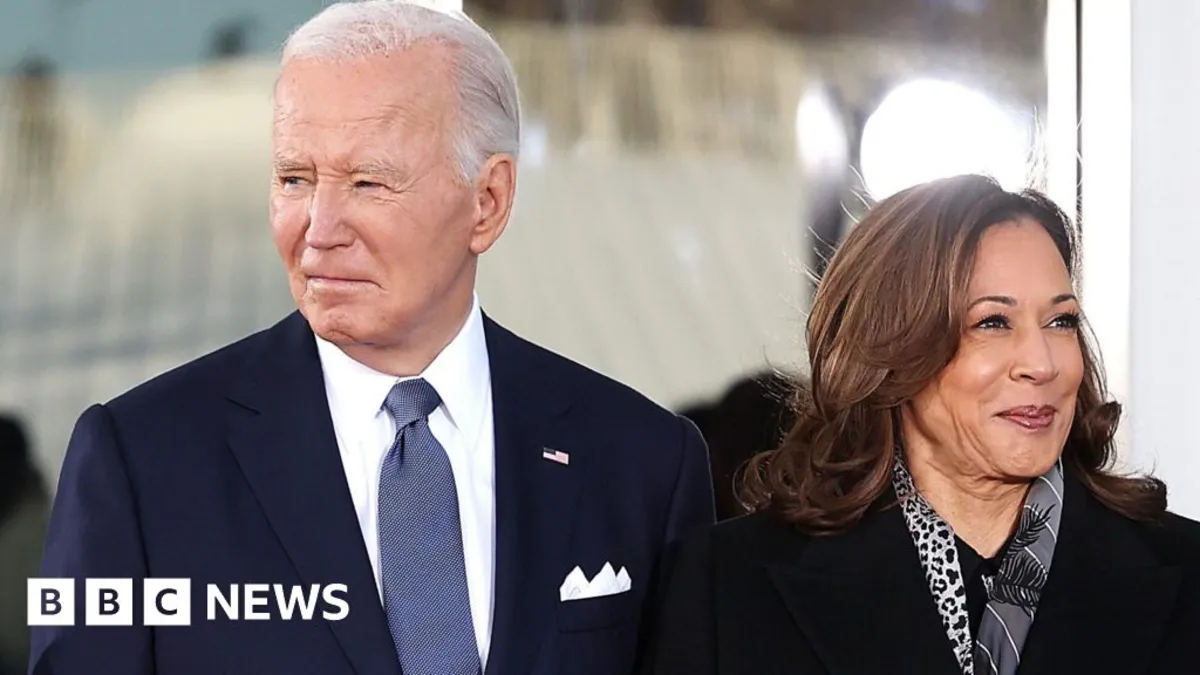
Former US Vice-President Kamala Harris has made headlines with her sharpest criticism of President Joe Biden yet, as revealed in an excerpt from her forthcoming memoir, titled 107 Days. In a candid reflection, Harris characterizes Biden's decision to seek a second term as a form of recklessness, raising important questions about the implications of such a choice. "It's Joe and Jill's decision," she writes, echoing sentiments shared among the administration's inner circle. "Was it grace, or was it recklessness? In retrospect, I think it was recklessness," she asserts.
The Atlantic published a detailed 3,000-word excerpt from Harris's memoir on Wednesday, providing a glimpse into her experiences and perspectives during her time in office. The title 107 Days refers to the duration of her unsuccessful presidential campaign, highlighting the challenges she faced and the lessons learned. Harris describes moments where she felt sidelined or unrecognized for her contributions by Biden's team, indicating a deeper rift in their professional relationship.
In her memoir, Harris reveals that as Vice-President, she found herself in a difficult position regarding Biden's re-election. "I knew it would come off to him as incredibly self-serving if I advised him not to run," she wrote. This internal conflict underscores the complexities of their relationship and the political dynamics at play within the administration. Harris emphasizes that Biden's decision should have transcended personal ambition, given the high stakes involved in leading the nation.
One of the central themes in Harris’s critique revolves around Biden's age. At 81, she notes that his choice to run for re-election should have been more than an individual decision. "This wasn't a choice that should have been left to an individual's ego," she writes, hinting at the broader implications of Biden's age on his capability to serve effectively. While she acknowledges his intelligence and experience, she candidly points out, "But at 81, Joe got tired," referring to instances where his age became apparent through physical and verbal missteps.
Harris also addresses the challenges she faced as the so-called 'border czar,' a term that became a point of contention during her presidential campaign. Despite her efforts to secure billions in investments for Latin American countries to address the root causes of migration, she felt her role was mischaracterized. "No one in the White House communications team helped me to effectively push back," she lamented, highlighting the lack of support she received in clarifying her responsibilities and accomplishments.
In a poignant moment, Harris recalls a trip to Texas in July 2024, following a devastating hurricane. While watching Biden's televised address from her hotel room, she reflected on the speech's quality, noting that it took almost nine minutes for him to mention her. This delay, she suggests, underscores the ongoing communication challenges within the administration and the dynamics of their partnership.
Despite the mixed feelings surrounding her experiences, Harris's memoir is set to be published in full later this month, with a release date of September 23. To promote 107 Days, she plans to embark on a book tour across 15 cities, including stops in the United Kingdom and Canada. As the political landscape continues to evolve, Harris's insights could provide valuable context for understanding the complexities of her time in office and her relationship with Biden.